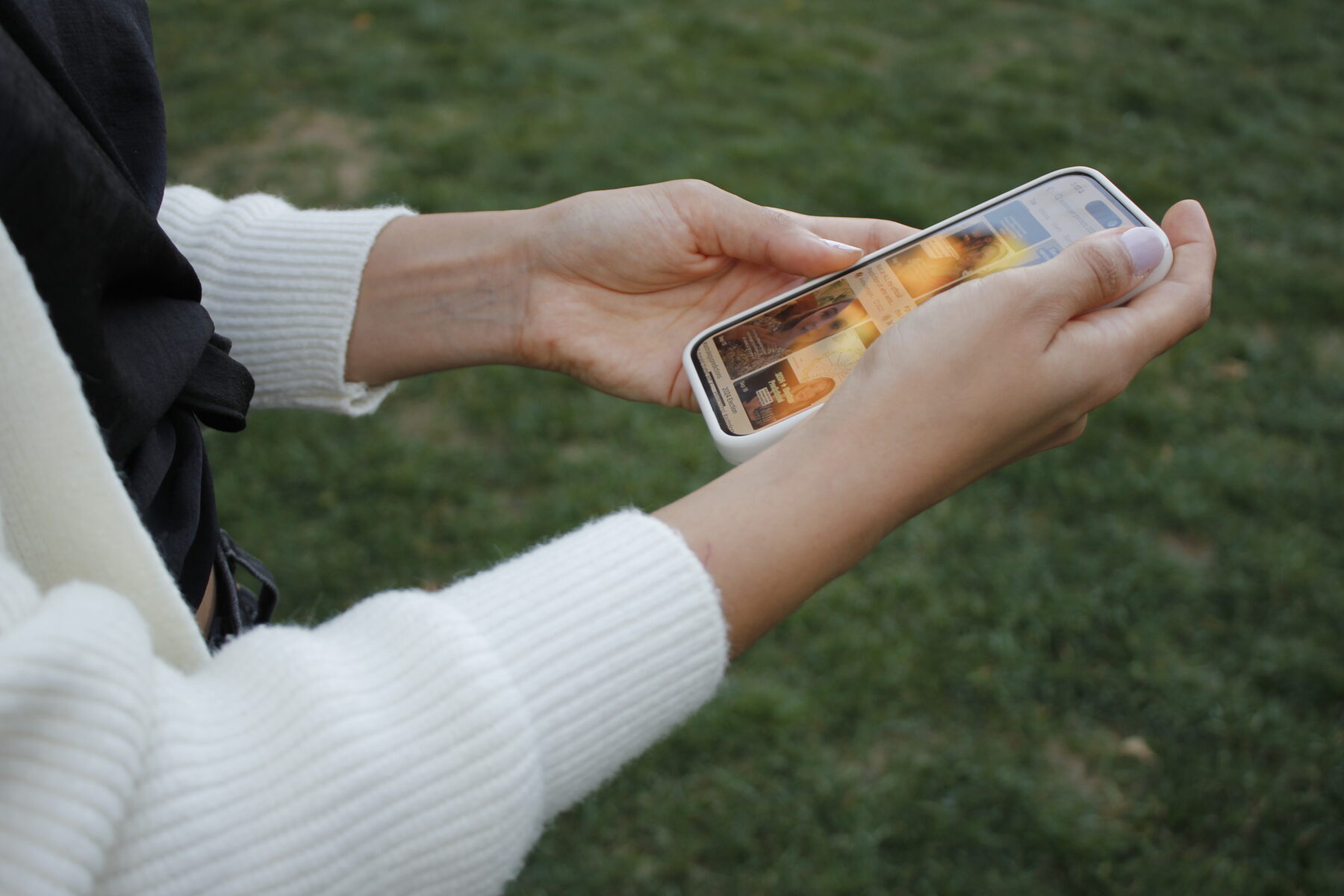 The astrologer Helena Woods encourages her roughly 34,000 YouTube subscribers and 28,000 TikTok followers to “create a magical life in places you love” in posts that address ordinary stresses like moving house or seeking romance.
The astrologer Helena Woods encourages her roughly 34,000 YouTube subscribers and 28,000 TikTok followers to “create a magical life in places you love” in posts that address ordinary stresses like moving house or seeking romance.
But as election day draws near, Woods – like other readers of the planets sharing their analyses on social media – has been commenting on America’s uncertain political future. In a half-hour video posted to YouTube earlier this month, Woods (who calls herself an “astrocartographer”) predicted that Kamala Harris will win the 2024 election and serve as president for two terms.
Woods, 30 explained Harris is in a “full moon progression,” which lines up perfectly with certain significant planetary movements, meaning that the candidate has entered a positive peak period of her life that will last eight years. The video drew more than 137,000 views.
It is impossible to tally how many eligible voters are turning to social media astrologers to help them make sense of the election. Darin Hayton, a historian at Haverford College, whose research focuses on sciences of the stars and mathematics, said that social media has allowed what has long been a widely followed practice to become more visible.
“What we take to be [astrology’s] increasing popularity is in part an increasing awareness of its popularity,” he said.
Still, a search on TikTok using the term “Astrologer Predicts 2024 Election” yields 28.3 million hits. And Woods and others sharing celestial chart readings on social media have observed a sizable uptick in their popularity.
“My business is bigger than it’s ever been because of this election,” Woods said. “More and more people are booking readings with me.” Although those private sessions do not focus on Donald Trump versus Kamala Harris, they address an anxiety that Woods attributes to the dread and divisiveness people are experiencing in response to the race.
Astrologer Laurie Rivers, 55 (236,000 followers on TikTok), said the numbers of her social media audience and podcast listeners doubled since Biden dropped out of the race in July.
“Nobody goes to an astrologer when things are going great,” Rivers said. Rather, they seek such counsel “when they are at a crossroads. Well, the nation’s at a crossroads. So people are going to, in uncertainty, seek answers.”
The answers that Rivers, Woods, and their colleagues offer don’t tell anyone whom to vote for, but they try to offer reassurance, if only by reducing fear of the unknown.
Voter Ally Lopez, 37, who lives in New Jersey and follows the Canadian astrologer Chani Nicholas said, “something that astrology has provided me is some foresight about how I can prepare myself for what might be coming.”
Lopez has turned to political astrology since Trump took office in 2017. Since then, she said, “I have felt so out of control.”
It was during Trump’s administration that the popular astrology app Co-Star launched, and that TikTok became available in the United States; such platforms provided users like Lopez new, expanded access to the consolations of studying the movements of planets and moons through the zodiac.
Lopez represents some 30 percent of Americans (mostly female) who believe in the predictive accuracy of astrology, broadly defined, explained Woods, as the correlation between celestial bodies and earthly events. For Gen Z and Millennial Americans, that number runs closer to 50 percent, according to a 2024 survey by The Harris Poll.
“In times of stress, that’s when I think creators start creating [political] content,” said California voter Megan Lehrer, 29. “I don’t know TikTok’s algorithm but it’s very effective and good at having it land on my For You page. And it gives me a sense of solace.”
Lehrer’s attention to political astrology grew a little less than four years ago, after Rivers posted a TikTok video at 5:00 a.m. Eastern time on January 6, 2021, cautioning followers not to go to Washington, D.C. that day. While Rivers couldn’t have predicted the Capitol insurrection in any detail, she did see in the stars “a very volatile energy,” which pointed to violence.
That was when Lehrer thought, she said, “maybe there’s some credence to this.”
Divination and politics have had a relationship for centuries, especially in times of crisis.
England’s Queen Elizabeth I employed a personal astrologer who guided the royal court’s decision-making. In that period, and earlier, astrology possessed the authority that science has today.
“It was a specific discipline that people were trained in, went to university to learn how to do and became experts in,” said Hayton. “But everybody walking the street also had this sort of astrological worldview that they used to make sense of the world.”
As recently as the 1980s, Nancy and Ronald Reagan allegedly consulted with an astrologer on White House matters.
And last January, Fox News brought a psychic on air to predict what’s in the cards for the 2024 presidential election through a Tarot reading. Spoiler: if you invite a psychic onto your show, you might not like what you hear.
Some of Rivers’s followers definitely don’t like all of her predictions. “Most people want me to tell them their candidate will win,” she said, “and they get very upset when I don’t.”
But astrologers don’t make things happen, they maintain; they just observe what is already fixed in the cosmos.
“We literally just translate what’s being written,” said Woods.
She emphasized this point in her video predicting Harris’s victory. Wearing a bright pink outfit with puffy sleeves, her blue eyes staring deeply in the camera, Woods walked through her reasoning based on planetary movements.
With Jupiter – “which represents abundance, growth, and opportunity” – in Harris’s first house, she said the candidate is “in a very positive, lucky time during this election and afterwards.” Meanwhile, on election day and a few days after, Mars, the planet of aggression, will be in Trump’s house, suggesting conflict and civil unrest.
Soon after, Woods signed off. “Stay grounded, remain soft, love on your fellow neighbor,” she said with a smile.
(Photo credit: Ana Gonzalez Vilá)
About the author(s)

Diba Mohtasham
Diba Mohtasham is a culture reporter in the M.A. Arts & Culture program at the Columbia Journalism School. She previously worked for NPR, both in digital and audio.



